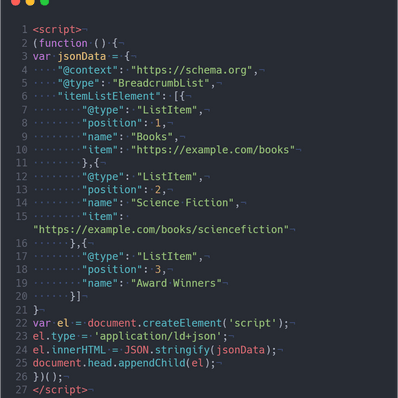Bidding on Your Brand in Google Ads
Jason Fried, CEO of Basecamp, started a controversial discussion on Twitter regarding brand protection in Google Ads.
I really like Basecamp. In the last four years, I’ve tried Asana, Trello, Teamwork, and other tools, yet BC reigns supreme in my productivity tool shed. I am also not defending Google. It is responsible for about two thirds of my daily headaches related to on-line marketing, so I’m not too eager to jump to their aid. At the same time, the discussion has taken an ugly turn.
We have gone from talking about on-line brand presence and protection to venting about shakedowns and exploitation. Let’s try to break down the problem into manageable pieces.
The relevance issue
Google cares about relevance regardless of whether the result is organic or paid. The number of users who tend to click on paid results is increasing, according to research from Varn.
If a competitor writes a more compelling and relevant ad using your brand terms than your own marketing team, you deserve to be punished. It means that someone else has done enough research and gone through enough customer insights to defeat you at your own game. If the competitor had done a shoddy job, his ads won’t even show.
The practical perspective
Brand terms are cheap in comparison to category-related keywords. They also have a very high Quality Score (QS) and rank higher, because some factors that go into calculating Ad Rank and Quality Score are similar. It’s the low hanging fruit of paid search advertising.
Competitors trying to rank on your brand terms without a sophisticated strategy are going to have a hard time. They don’t have as high QS as you do, plus Google can ascertain that they are targeting a competitor. That translates into high cost per click (CPC). Targeting your competitors’ branded keywords is a very short-sighted tactic, unless you have a ground-breaking product and a stellar visit-to-customer funnel.
You can also protect your brand by proving it belongs to you, thereby tightening security around it. You would be surprised how many brands fail at this. Other advertisers aren’t able to use your brand in headlines, display URLs or ad copy. There are ways to circumvent it, because algorithms governing Dynamic Keyword Insertion and Dynamic Search Ads aren’t perfect yet.
From the technical perspective, our data indicates that Google’s algorithms protect the incumbent brands and put aggressive competitors into an economic disadvantage.
The moral dimension
Should Google be charging money for showing your own brand? This is where it gets really complicated. On one hand, you may say: “Their platform, their rules – let them charge whatever they want and the market will sort it out.” The issue with that line of thought is that there is almost no alternative to Google, as Jason pointed out. Any market auto-corrective action or government intervention is going to take far too long.
Another issue is that there are many scammers that are successfully gaming the system. This is a legitimate concern and also an are where Google is falling behind in a staggering fashion. The platform needs to crack down on advertisers who use users’ blind spots and mental shortcuts to scam them.
In practice, I don’t have a problem with bidding on competitors’ branded keywords or other competitors bidding on our agency name, because I know that the amount of use cases when it makes economic sense is very low.
The pay-to-play model
Jason also mentioned in his interview with CNBC that tech firms get bigger and then force brands into pay-to-play model.
How is that different from any other mass medium? You might argue that nobody forces you to take out ads in print or TV, but Google holds you hostage; you don’t bid on your own brand terms – down in the results you go.
This indicates a problem of mindset as opposed to a problem of reality. In this line of thought, you think of SERP ads as of something that is thrust upon you by the overfiend from Mountain View. My recommendation is to start viewing bidding on one’s brand terms as of a source of dirt cheap and very relevant clicks. Bing ran a study for retail and travel verticals that examined how much people click on search results when different elements are present. TL;DR version: it pays off to run ads and have good SEO – you get a lot more clicks. Who knew?!
On-line marketing is an arms race where funds, insight and creativity are primary weapons of choice. According to one of Rory Sutherland’s lectures, all marketing is a strategic waste of resources (I’ll supply the link when I find it). Fortunately, the marketing field is so wide that you can compensate for your shortcomings in one area by excelling in another one. If you’re not good at paid search, social might be your forte. If you are really bad at display, try affiliate. If you find out that you have to be really good at paid search because your customers require it, plan around it and get better.
Solving your customers’ problems doesn’t have to require a media budget.
The fairness problem
Letting competitors to bid on your branded keywords is remarkably consistent with Google’s philosophy and principles. Based on feedback from some Googlers, I surmised that the company is very much interested in creating a mirror of the real world in virtual space.
In my mind, Google doesn’t strive to build a perfectly fair and equal search engine, but a perfect representation of our individual realities. This creates fundamentally unequal virtual realities where some brands are stronger than others, and where you must pay for people’s attention. It’s just like the real world, although a bit less subtle.
The solution?
I would recommend to adapt. Bidding on brand terms is a great way to get cheap and relevant traffic with strong commercial intent. In the meantime, feel free to lobby the government and complain to Google, but don’t punish your business by missing opportunities.

Managing Director
Honza Felt is a performance marketing specialist who turned into a marketing consultant after a mysterious accident. He spends his days leading a bunch of misfits at CF Agency. Drinks rum and knows things.

